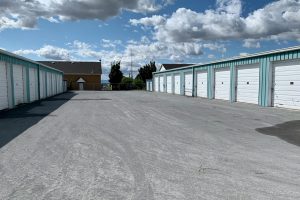The Pros And Cons Of Investing In A Vacation Home
Investing in a vacation home is a significant decision that comes with a myriad of considerations. However, this choice, often romanticized by the allure of a serene getaway or the promise of lucrative rental income, involves more than meets the eye.
In this post, we'll outline and explore the pros and cons of this investment strategy, providing a balanced perspective to help you make an informed decision. Let's begin!
Pros of Investing in a Vacation Home
1. Personal Retreat and Family Legacy
One quintessential example of a vacation home is a waterfront property. Imagine the serene pleasure of having a private dock in your backyard, giving you direct access to the water for boating, fishing, or simply enjoying the view. This feature enhances the personal retreat aspect, making a waterfront home not just a place to stay but a cozy hideaway that embodies relaxation and recreation. Waterfront homes can also become treasured elements of a family's history, offering a unique and intimate escape that can be cherished for generations.
2. Rental Income Potential
Another significant advantage of owning a vacation property is the potential to generate rental income when the home is not for personal use. It's worth noting that the demand for short-term rentals can be high, especially if located in prime vacation spots, offering a lucrative revenue stream. With this income, you can cover the property's mortgage, taxes, and maintenance costs, effectively allowing the investment to pay for itself over time.
3. Appreciation in Property Value
Real estate typically appreciates over time, and vacation homes in sought-after locations can see significant value growth. This means they offer a double benefit: a place to unwind and create lasting memories, along with the potential for significant financial returns. And when the time comes to sell, you could reap the benefits of this appreciation, turning a profit on your initial purchase.
4. Tax Deductions and Benefits
Depending on your country's tax laws, owning a vacation home can offer various tax advantages. These include deductions for mortgage interest, property taxes, and expenses related to rental activity. These financial benefits can make owning and maintaining a second home more manageable.
5. Lifestyle Investment
Beyond financial gains, a vacation home is an investment in your lifestyle. It offers a dedicated place to relax, explore, and engage in your favorite leisure activities, whether hiking, skiing, beachcombing, or simply unwinding in a different setting. This aspect can significantly enhance your quality of life and well-being.
Cons of Investing in a Vacation Home
1. High Initial and Ongoing Costs
The allure of owning a vacation property often overlooks the substantial financial commitment it entails. Beyond the initial purchase price, ongoing expenses include utilities, maintenance, property management, and insurance. These costs can quickly add up, especially if the property is in a high-demand area prone to natural wear and tear or requires significant upkeep.
2. Market Volatility and Risks
While real estate tends to appreciate over time, the market can be unpredictable, especially in vacation-centric areas susceptible to economic fluctuations and natural disasters. This volatility can affect property values and rental income, which can then pose financial risks to the homeowner.
3. Limited Usage And Flexibility
When investing in a vacation home, your holiday options may become limited. For one, you'd want to maximize the property's use or the rental's potential, which can lead to you and your family vacationing at the same place repeatedly. This can limit your travel flexibility and the variety of experiences available to you and your family.
4. Management And Rental Challenges
Renting out your vacation home when it's not in use can help offset costs, but it also introduces management challenges. This includes finding and vetting renters, handling bookings, ensuring cleaning and maintenance between stays, and dealing with any issues. This can be time-consuming and stressful, particularly if you live far from the property.
5. Illiquidity And Tying Up Capital
Real estate is an illiquid asset, meaning it cannot be quickly converted into cash without potentially incurring a loss. By investing a large sum in a vacation home, you're tying up capital that could have been used elsewhere. This could affect your financial flexibility, particularly if you face unexpected expenses or investment opportunities.
Wrapping Up
The idea of owning a vacation home may seem idyllic, but it's crucial to approach this investment with a clear understanding of both its advantages and challenges. The decision should align with your financial situation, lifestyle preferences, and long-term goals. Moreover, by weighing these pros and cons, you can better determine whether investing in a vacation home is right for you.








